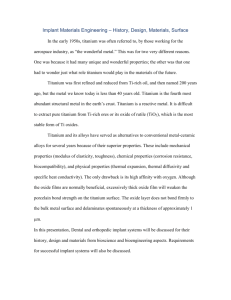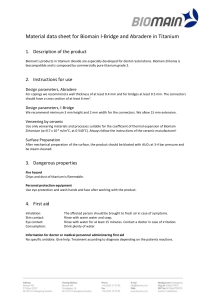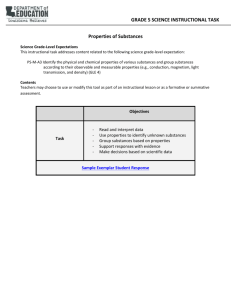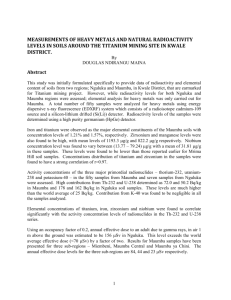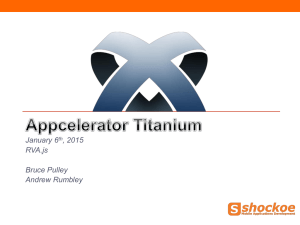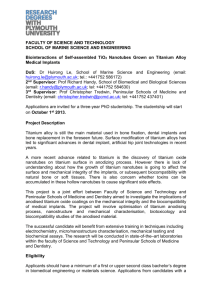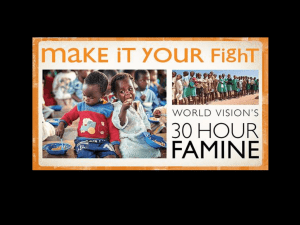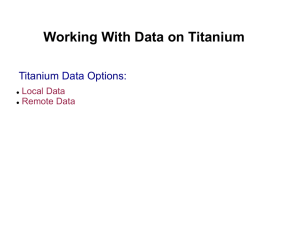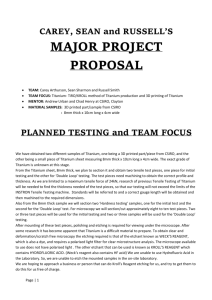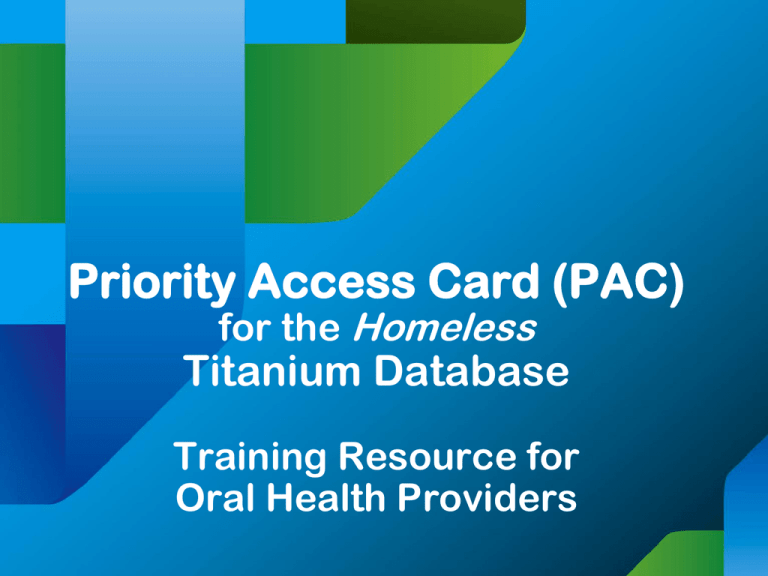
Priority Access Card (PAC)
for the Homeless
Titanium Database
Training Resource for
Oral Health Providers
Purpose
This training resource has been developed to
provide you with instructions.
Part 1: Titanium data entry
Part 2: Running reports from Titanium
For the second phase of implementation of
the Priority Access Card (PAC) for the
homeless.
Background Information
The Priority Access Cards (PAC) were printed
with unique identifying numbers for the second
phase of implementation.
These cards were distributed to each homeless
centre with the numbers noted.
With your help, we are able to reconcile and
identify, the homeless centre and the method of
distribution.
Background Information: Priority
Access Cards – Unique Identifiers
What do we mean by two methods of
distribution?
Method A card
Method A: Active – Case Manager or
Community Nurse intervention
(BLUE CARD)
A10001
Unique identifiers
preprinted here
Method B: Passive - Client collects
from the waiting area
P80010
(GREEN CARD)
Method B Card
Part 1 data entry:
What do the Unique Identifiers mean to us?
Codes have been added to the
Titanium database to assist in
evaluating the second phase of
implementation.
Rationale: When a Homeless Person
presents with a Priority Access Card
Why did we use code numbers in Titanium?
We needed to identify;
1. Which Homeless service distributed the card
2. The type of distribution method (active or
passive)
3. Build on current procedures for Oral Health
Services rather than create additional
spreadsheets (electronic or paper)
Part 1 Data Entry: When a Homeless
Person presents with a Priority Access
Card
Codes have been formatted in the Titanium database
that correspond to the numbers on the Priority Access
Cards……however we were unable to exactly match
due to character limitations. So…
Part 1 data entry:
This is what it looks like in Titanium
Priority Access Card for the Homeless
PART 2 REPORTS
Rationale: When a Homeless Person
presents with a Priority Access Card
Using Titanium as a database means
Able to run reports as individual services from
Titanium (fortnightly)
Part 2: Running reports from Titanium
The project goes live 1 October 2014 and
concludes 31 January 2015.
We are requesting that you run a report for
the codes for the homeless every fortnight
and submit it to the project manager
Deidre Watson
dwatson@nmml.org.au
Telephone 94902700
Procedure: Running reports from Titanium
Step1: Log in to Titanium
Step 2:
Click
Reports tab
Productivity report
Service mix report
Step 3:
Enter
Agency Code
Start Date
Payor Group
Provider
Visit Setting
#%&#
1/10/2014 (always)
All
All
All Except Private
Dental Setting
Priority Access
All
Age Group
All
Provider Registration All
Step 3 continued
Item Code Type
End Date
Payor
COC type
Clinic Site/Group
Accommodation
Provider Type
All Item Codes
xxx
All
Gen, Emer, Dent
All
All
All
Step 3: Visual of field entry for the 2 previous
slides
Step 4:
Click on view report
Step 5:
Export into Excel
Drop down box
Step 6:
Save as Service Mix Report Oct1_[date]
in your drive:
Cpd_documents\[agency]\Output_Reports
Report
name with
date
Step 7:
Return to your CDP Documents folder, and copy
your file, created in step 6, to your local
V:\ C$ drive, so that it can be sourced locally to
email
(You may need to create a folder to save all
these reports in on your C:\ drive)
Step 8:
Send fortnightly reports as
an attachment to:
Deidre Watson
dwatson@nmml.org.au
Resources:
This resource is also available on the
following website
http://www.nmml.org.au/dental
Thank you
On behalf of the North West Oral Health
Leadership Group, we would like to take the
opportunity to thank you for assisting with the
implementation of this important initiative.
We would also like to acknowledge the great
help and support of Dental Health Services
Victoria in helping with this second phase of
implementation and the use of the Titanium
database.

